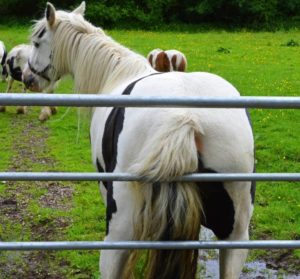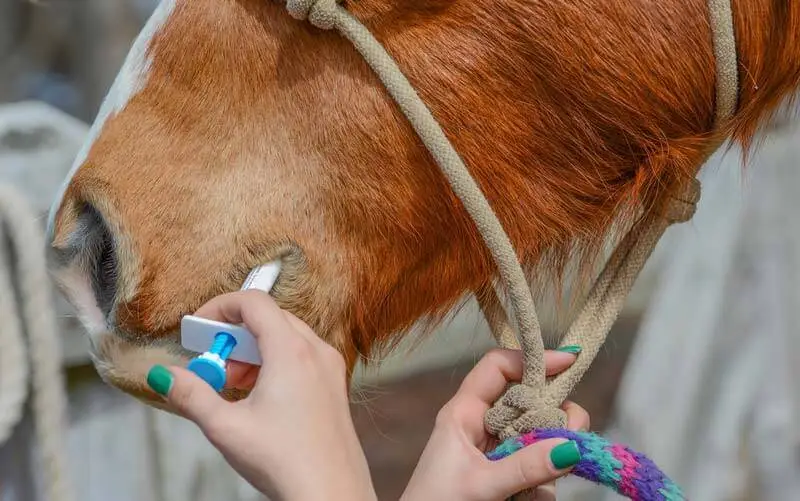My horse is rubbing its tail. Could it be worms?
Most often, tail rubbing is a symptom of pin worm infestation, which will need to be combated with effective worming control. However, there are a number of other possible causes of tail rubbing, so it’s best to consult your veterinarian.
Tail rubbing
Also known as rat tail, broken hair or matted tail, tail rubbing most often indicates the presence of pin worms. Eggs of pinworms are laid around the anal area, which leads to intense itching, or pruritis, and tail rubbing is the only way your horse may find relief.
However, tail rubbing may also be caused by:
- Insect hypersensitivity
- Food allergy
- Lice infestation
- Mange
Like crib biting, tail rubbing may occur as a behavioural vice. A veterinary examination will help you determine the precise cause of tail rubbing in your horse.
Pin worms
Any horse at any age may be affected by pinworms, with tail rubbing symptoms beginning at five months of age. Using clear tape, your veterinarian will take a sample from the perianal area, which is then observed under microscope for pinworm eggs.
If pinworms are detected, your veterinarian will be able to provide advice on your worming program. They may also recommend some stable management practices to reduce the possible ingestion of pinworms, including manure removal and using feeders at meal times.
Once the pinworms are under control, tail rubbing behaviours should begin to subside and the hair will start to grow back within a few weeks. While there aren’t any long-term problems associated with tail rubbing, keep an eye on this area to ensure it’s healing well.




